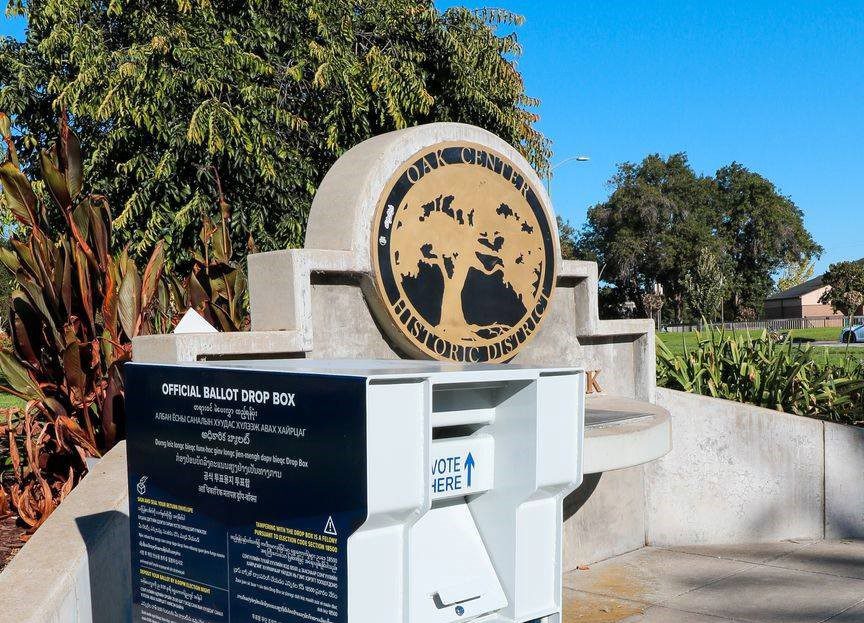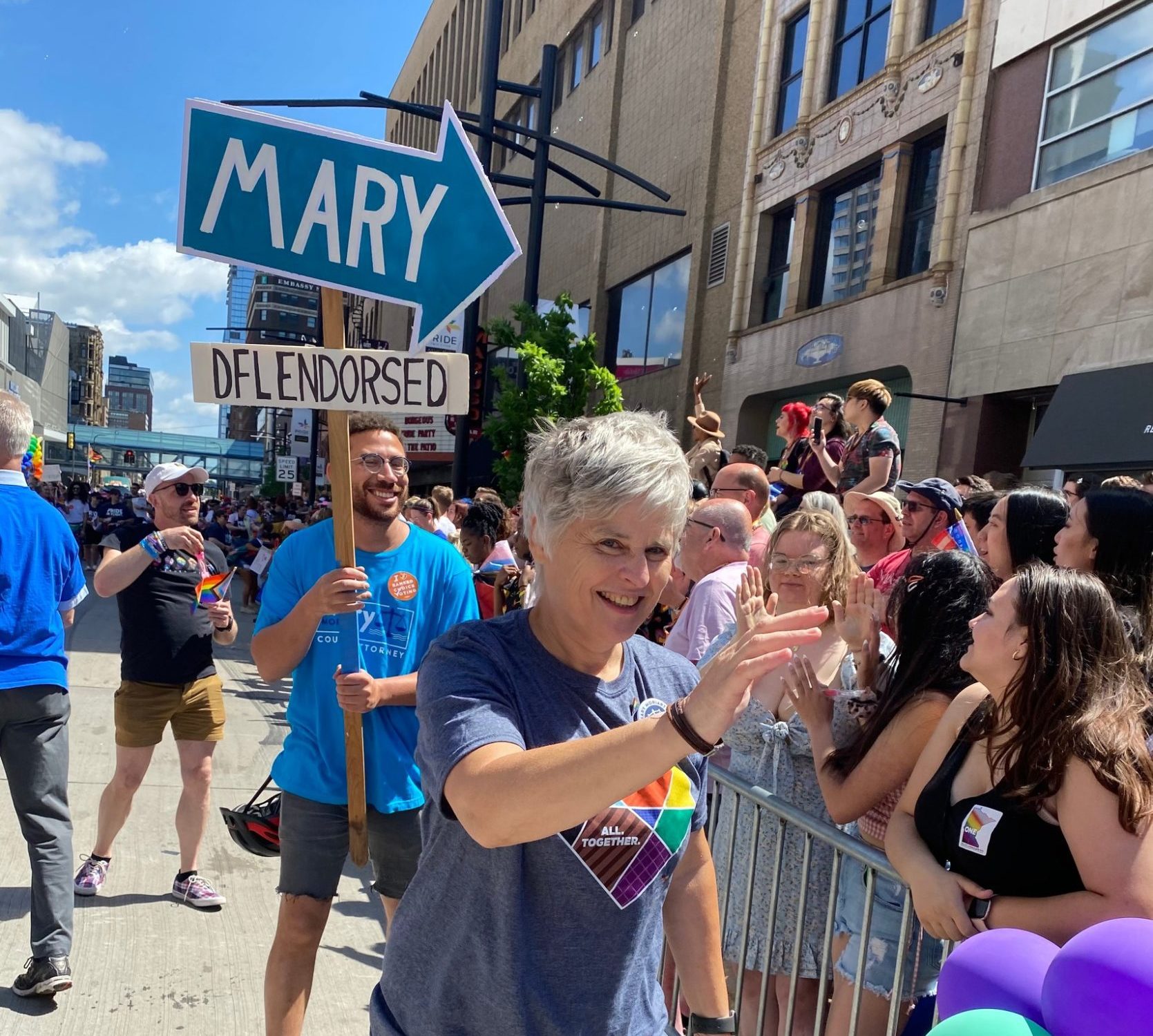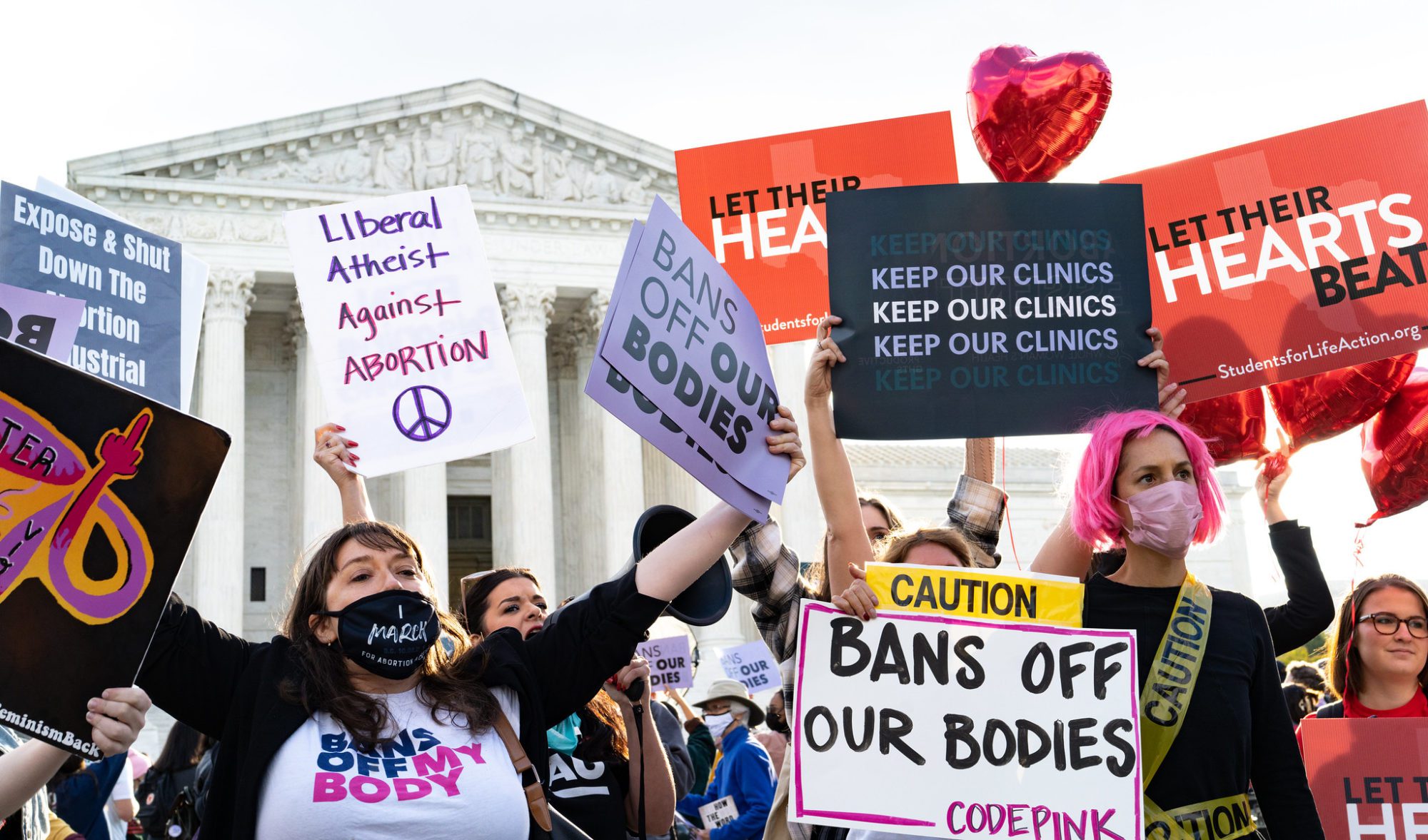The Ballot Measures That Revamped Voting on Tuesday
Voters approved initiatives expanding early voting and ranked choice voting on Tuesday, and approved many other expansive changes to election systems.
| November 10, 2022

Perhaps more than any one party or candidate, voters shook up voting itself in Tuesday’s elections. Ballot measures around the country resulted in expansive changes to election rules through reforms that are meant to increase turnout or make results more representative.
In Michigan and Connecticut, they made it easier for people to vote early in future elections. In at least six localities, voters adopted ranked-choice voting. Oakland, California, adopted a new experiment in leveling the playing field in campaign spending. And other measures will try out new approaches to increasing participation locally.
“It’s great to see voters embracing pro-democracy reforms to make the voting process easier and more inclusive,” Josh Douglas, a University of Kentucky professor who specializes in election law and was watching a wide array of ballot measures on Tuesday, told Bolts. “When we make it easy to vote, and when turnout improves as a result, then democracy wins.”
The biggest expansion of ballot access on Tuesday comes with the passage of Michigan’s Proposal 2, a catchall measure that amends the state constitution to make voting easier while also protecting against efforts to curtail voting rights launched in the aftermath of the 2020 presidential election.
The proposal, backed by a coalition of Michigan organizations that support expanding voting rights, will establish nine days of early in-person voting, create new mandates for townships to set up ballot drop boxes, and supply state-funded postage to vote by mail. It passed handily with 60 percent of the vote.
“It’s the role of our government to make sure people have the ability to vote and aren’t bogged down by constructed barriers,” Branden Snyder, co-executive director of a Detroit group backing the measure, told Bolts in October.
Yvonne White, president of NAACP Michigan, another member of the coalition, celebrated the result this week, stating in a press release that, “Proposal 2 helps to ensure that every eligible voter in Michigan will have their vote counted without intimidation, harassment or interference.”
Early voting also notched a win in Connecticut, which has some of the nation’s strictest rules for people who hope to vote before an Election Day; voters there adopted a constitutional amendment that authorizes the legislature to set up early voting. (It does not mandate this, unlike Michigan’s.)
At the local level, voters adopted a variety of innovations in campaign and voting procedures, with an eye to revitalizing democracy. Oakland, California passed a measure to revamp campaign finance and implement a democracy vouchers program in future local elections. It leads with 69 percent of the vote as of publication.
The program would provide each eligible voter with four $25 vouchers to donate to the candidate of their choice for upcoming city and school board elections, Bolts reported in July. Proponents of Measure W, modeled after a similar one that passed in Seattle in 2017, hope to draw more residents into the electoral process as small donors and candidates, while also increasing transparency in campaign finance. Since Seattle implemented its program, it has seen a 350 percent increase in the number of donors per race, and the pool of candidates in local races has diversified.
Other provisions in Measure W would lower the cap on campaign contributions for city races to $600, and require campaign ads to list their top three contributors. Jonathan Mehta Stein, executive director of California Common Cause, which supported the measure, says democratizing campaign funding is a means of democratizing the governing process.
“We have hyper concentrated political giving in the hands of a tiny and totally non-representative slice of Oakland,” Stein told Bolts. “The majority of Oakland, which is working class and communities of color, has virtually no political giving power—and that changes who can run for and win, and it changes what ideas are taken seriously.”
Oakland also appeared poised to adopt a separate initiative to enable noncitizen residents who have children in city schools to vote in school board races. Noncitizen voting, which has long existed in some localities around the country, has spread over the past year, including to some municipalities in Vermont. But voters in Oregon’s Multnomah County turned down a measure on the issue on Tuesday, and Ohio voters adopted a constitutional amendment to ban noncitizen voting in local and state elections.
In San Francisco, California, and Boulder, Colorado, voters approved proposals to move city elections from odd-numbered to even-numbered years so that they coincide with federal and statewide elections, which will boost turnout.
And at least six jurisdictions nationwide voted to institute new ranked-choice voting systems. Proponents of the procedure, which asks people to rank candidates by order of preference rather than just opt for one, say it helps better reflect voters’ preferences.
Ranked-choice measures appear to have passed in Ojaj, California; Fort Collins, Colorado; Evanston, Illinois; Portland, Maine; Portland, Oregon; and Multnomah County, Oregon (which includes Portland). In Washington State, Clark and San Juan counties rejected ranked-choice voting, and the fate of a similar measure in Seattle was inconclusive as of publication.
But all eyes were in Nevada, a critical swing state voting on whether to adopt ranked-choice voting for state and congressional races; Alaska and Maine are the only states that already do this. Ballot Question 3 leads by 3 percentage points as of publication, with remaining ballots likely to lean in its favor. (Update: The Nevada Independent called the referendum in favor of Question 3 on Nov. 11.)
Before ranked-choice voting comes to Nevada, though, voters would need to approve it a second time in 2024 due to the state’s multi-year process for adopting constitutional amendments.
As Bolts reported in September, establishment politicians from both parties criticized the measure as too complicated and confusing for voters. But proponents of Question 3, which would also get rid of the state’s closed primaries, saw it as shifting power away from big-party politics and back to voters in a state where the largest plurality of voters are either nonpartisan or members of a minority party.
According to FairVote, a national organization that supports ranked-choice voting, Tuesday’s results mean that there are now 61 jurisdictions that will use ranked-choice voting in their elections. Critical elections, including a U.S. Senate race in Alaska, a U.S. House race in Maine, and the DA race in San Francisco, are set to be resoled by ranked-choice voting in coming weeks.
The energy around these democracy measures come at the same time that voting rights have come under attack.
Michigan’s ballot proposal was written to include defensive measures against the attacks on election systems that emerged from the Trumpian lie that the 2020 election results in Michigan were invalid. Conspiracies about widespread fraud resulted in at least one county canvasser board resisting certifying election results, outside groups calling for an independent audit of statewide results, and Republican legislators introducing a slate of bills that hemmed in people’s ability to access the ballot.
The drafters of Proposal 2 countered each of these attempts with a specific reform. A 2021 petition to conduct an independently-funded “forensic audit” of 2020 election results, for example, was met with a provision in the ballot measure establishing that only election officials can conduct audits.
Also on Tuesday, Michigan Democrats gained control of the state government for the first time in nearly 40 years by flipping the state legislature, and they also maintained control of the governorship and state Supreme Court, which may aid the measure’s implementation given Democrats’ broader support for these reforms.
And a candidate who was running to take over election administration in Michigan on a platform of similar conspiracies handily lost on Tuesday in the secretary of state race. (Many other election deniers fared very poorly around the country.)
The fate of some ballot measures remained uncertain as of Thursday. In Arizona, measures to tighten voter ID requirements or make it harder to pass future initiatives were unresolved as of publication, with hundreds of thousands of ballots left to process.
The article has been updated on Nov. 11 with more information about elections in Nevada and San Francisco.




